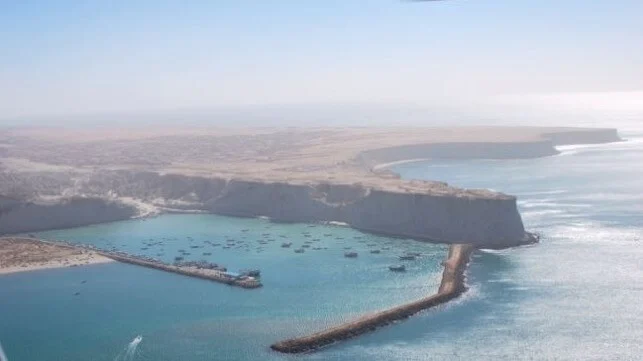Almost two months after India signed a 10-year agreement to develop and operate Iran’s Chabahar Port, details have emerged that parts of the deal are being kept confidential to avoid U.S. sanctions. This was revealed last week by the Head of Iran’s Ports and Maritime Organization Ali Akbar Safaei, during an interview with the local press.
Earlier, Safaei had been asked to comment on the future activities of the Indian operator in Chabahar. However, he refused to publicize all the details citing some confidential clauses in the contract.
“The contract with the Indian operator is public but some of its aspects have been made confidential. There may be the possibility of India coming under U.S. pressure in the event all details of the contract are made public to the media,” said Safaei.
New Delhi views Chabahar port as a strategic maritime gateway to boost its trade with the landlocked Afghanistan and Central Asian countries. The port is also an important hub within the planned International North-South Transport Corridor (INSTC). The multi-modal transport network seeks to connect the Indian Ocean and the Persian Gulf to the Caspian Sea via Iran. Other members of INSTC include India, Russia, and several Central Asian landlocked countries. Most importantly, Chabahar will be a direct competitor of the Chinese-backed Gwadar Port in Pakistan, with the two ports 100 miles apart and seeking access almost to the same hinterland.
India’s investment in Chabahar port remains a controversial debate. Specifically, India is seen to be enabling Iran to conduct international trade, while it is under heavy economic sanctions from the U.S. The U.S. State Department maintains that any entity considering doing business deals with Iran needs to be aware of the potential risk of sanctions. This has led to a lot of speculation about how the U.S. would affect its power concerning the India-Iran port deal.
India first signed a short-term deal for the port in 2018 and has followed up with several subsequent deals. In May 2024 a 10-year deal was signed to support the port. When the latest deal was announced, India’s Foreign Ministry downplayed the tension, stating that New Delhi would “communicate the benefits” of the Chabahar deal to the U.S. The ministry also urged countries not to take a narrow view of the deal.
While the administration of former president Donald Trump publicly extolled a harsh stance against Iran, in December 2018 it issued a sanctions waiver to India for the port deal. U.S. Secretary of State Mike Pompeo justified it saying the port was designed to provide economic support to Afghanistan.
India’s port deal with Iran has highlighted the fragile relationship between the country and the U.S. In the course of India advancing its own national interests, it has appeared to sidestep some of the economic sanctions led by Washington, especially in countries such as Russia and Iran.
India is currently one of the biggest buyers of seaborne Russian crude since the West started implementing sanctions against Moscow. India recently struck a deal with Russia to buy the oil in rubles. This follows heavy sanctions by the EU and the U.S. against the Russian financial sector, halting trading in dollars and euros.

